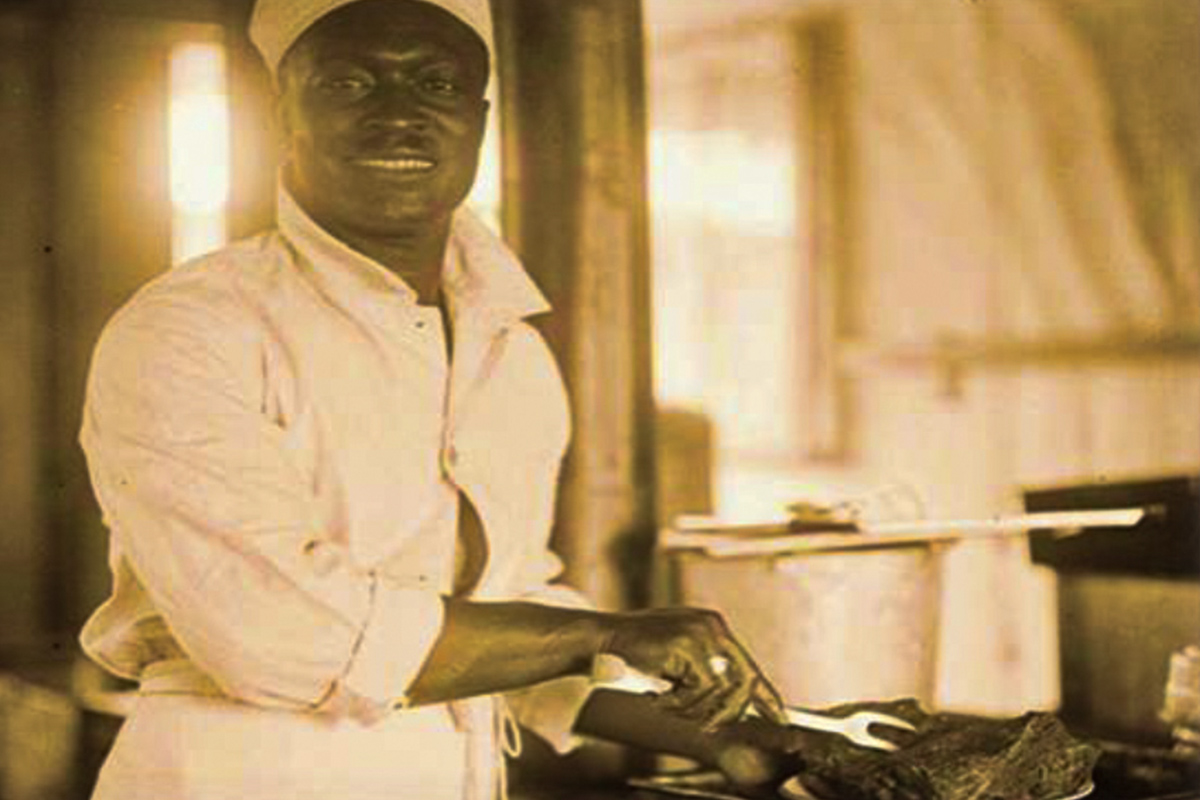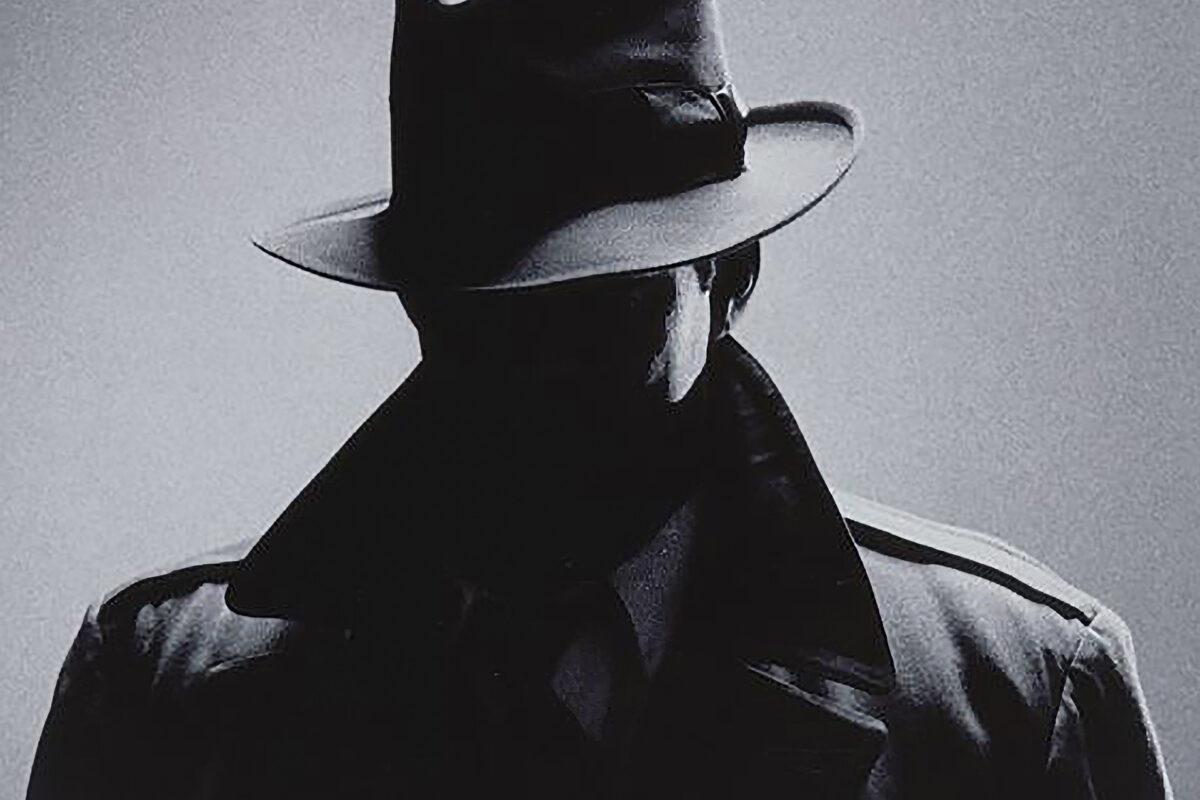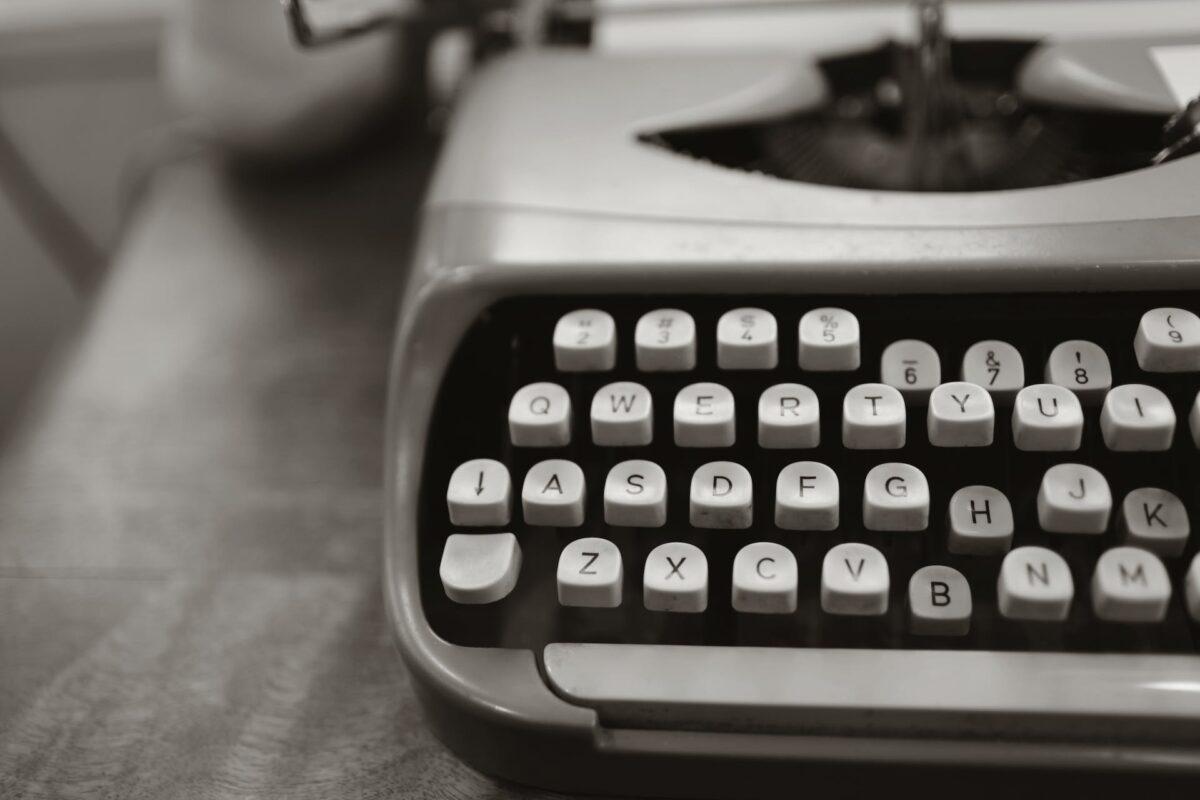William Kennedy Lee was the biggest, blackest man I’d ever seen. My best friend, Jimmy McManus, once told me he was six foot six inches tall and I believed him. There was also a rumor that Lee had killed a man. I thought maybe that was going a little too far.
“Just look at those yellow eyes,” said Jimmy. “I bet he did kill somebody.”
At first, we were both pretty terrified of him. But we soon realized that he was a favorite with the kids at camp. And when you got up close, he really didn’t look like he could hurt anybody. But that first week, just to be safe, we kept our distance.
It was 1964 and in those days America was pretty rough on people of color. Especially big black tough guys like Old Bill Lee. Some of them made it through okay and some of them didn’t. At least that’s what my dad and mom used to say whenever we’d be down to the city in the Buick and my mom would spot some fella lying drunk or sick on the sidewalk.
“Such a shame, those poor people have to suffer so,” she would lament.
My sister and I would always agree since we knew it was a done deal anyway. After lunch we’d never go back to talking about how some make it through okay and some don’t.
But I figured that Bill had made it through just fine, probably better than most, at least for the eight or ten weeks every summer when he held court as the cook at our summer camp in upstate New York. What he did in between was a mystery.
During the summer he kept to a strict routine. Each morning he would amble out of the kitchen hoisting an enormous beat up stainless steel container full of hot oatmeal and set it down gently next to the bread and butter table. One day after breakfast Jimmy and me tried to move the barrel. We wanted to see how heavy it was. We couldn’t even budge it. Not one inch. And it was half empty at the time.
“That guy could take Clay,” said Jimmy.
“Easy,” I answered.
Sometimes in the late afternoon, we would watch the big man standing over a mass of steaming pea soup or some other tasty concoction, already dressed for dinner in his clean starched whites, his dark shiny face reflecting prominent jawbones, his calloused hands with those giant crusty knuckles pulling the old wooden spoon through the thickening mixture. Other days he’d be sitting on the stump he used as a chair, humming old tunes from the hit parade and peeling endless potatoes, gleeful and smiling as if every spud were a jewel to be uncovered. I couldn’t imagine a life so full of sweat and struggle. I guessed that for Old Bill just to stay in one place and do his work was as good as it got for him.
He was larger than life, but not in a way that made you think of the ugly characterizations of Negros like Amos n’ Andy or Jack Benny’s man Rochester. That still existed in the days when I was growing up. He had a dignity that radiated from the center of his being and made you tingle with excitement every time he’d show us kids how to flip his famous flapjacks ten at a time. In a way, Lee was our first superstar and there wasn’t a kid in camp who didn’t think he possessed some kind of magic.
So when he asked me one evening around the middle of the summer, if I would take him out on the lake fishing later that week, I thought I’d died and gone to heaven.
“ Jess’ for a couple of hours, we’ll be back before taps.”
He slid me a sideways glance.
“You can row a boat, can’t ya?”
I kicked the ground and dug my hands in my pockets. I knew he was playing with me. Just the week before, he had seen me with Bob, the camp director, quietly slipping my oars in the water, one at a time, while we trolled for bass.
“ Yeah, I can row.”
“I need ya to be real quiet like. Evening is way different then fishing for sunfish.
Late night fish are awfully edgy,”
“No problem,” I said, lifting my head to look directly into those bright eyes.
His smile wrapped into the folds of his skin and his whole face lit up.
“Then I guess we got ourselves a deal, but you make sure you get permission.”
Later I’d told Andy, my assistant counselor that the cook asked if I could spend a few extra hours past curfew taking him fishing.
“That’s against the rules,” he said, his face planted behind a new Playboy magazine
“I know, but it’s Old Bill and I’ll be by nine, I promise.”
“Holy shit!” said Andy.
I jumped.
“What a pair!”
“Andy?”
“Yeah?”
“Can I go?
“Sure kid, but get your ass back by nine.”
That night I was ready. I’d gotten out to the lake and practiced every chance I could that week. .
“You going swimming?”
“No.”
“Then why do you have ya’ swimming trunks on?”
“Bob says it’s safer that way in case we capsize.”
Bill looked at me. “You figuring on capsizing a row boat?”
I was embarrassed. “I guess not.”
“Jesus lord,” he muttered to himself. “That’d be somethin’ even for a white boy like you.” I got busy and untied the boat from the dock. I knew enough from my experience with Bob to let Bill in first. He grabbed his tackle box, handed me the rod and got into the boat.
“Well, don’t just stand there, give me the rod and let’s get going.”
I pushed off. In a smaller voice than I’d hope for I asked, “Which direction?”
“Go toward the falls.” He raised his giant hand and pointed east, “We always start that way and work our way back. Don’t bother to be quiet for the next twenty minutes, just row us at a good pace. I’ll tell you when we get close to anything. “
A few minutes later Bill sniffed. Then sniffed again a little louder.
“Son, how much bug spray do you have on?”
I shrugged, which was not easy to do while you’re trolling.
“Not much”
“Hell, I can smell you a mile away. And so can the fish.”
“Oh.”
“You take Bob out smelling like that?”
“Sure. He’s always spraying bug spray on himself,” I said as if I was dispensing some important information.
“No wonder he never catches anything.”
Bill turned into his bag and brought out an old yellow bottle that looked like it contained some kind of brown slushy mud.
“I’ve been using this ever since I was a pup. Keeps the bugs away but the fish can’t smell it no way.” I took the bottle. “More important, it lets you smell when the fish are around. That’s the key to good fishin’. ”
Bill moved his hands slightly and lowered his voice.
“You ain’t learned nothin’ yet have ya? Well okay that’ll be good and bad. At least I’ll get to teach you my way. Now slow down and start trollin’.”
I did.
“Easy now, a little slower. Set the pace in your mind. Watch my rod. Listen to sounds around the boat. Look at the bubbles in the water.”
For the next two hours we glided back and forth on the lake, the water reflecting blue green and a touch of amber as the sun lowered behind the trees. I’d never actually seen the lake at that time of night since we weren’t allowed to swim after dark. It was beautiful. I’d row about half a mile in one direction, and then Bill would tell me to turn around. I wasn’t sure if we were chasing the fish, following them, or just rowing. Once in a while he’d snap to attention, cock his head in one direction or another and whisper, “That way.” By 9pm we were back at the dock. I brought the oars in, and got out of the boat. Bill handed me his rod, then his tackle box. He held the four bass that he had caught.
“Not bad. Not great, but not bad.” He looked at me like this was somehow my responsibility. I didn’t know what to say.
“Thanks.”
He mumbled something and began to walk off toward the kitchen. Then he stopped, sighed and said, “Do I need to walk you to your bunk?”
“Nah.” I was able to shrug distinctly this time. I was perfectly able to walk the path up to my bunk. After all, I was almost 12 years old.
“Okay then”, he was walking away already.
During the next three weeks we went out each Tuesday, Wednesday and Thursday evening. I always told Andy where I was going and he always gave me a “Sure kid,” and a wave of his hand. One week I even missed movie night. I didn’t really mind though. Not that we’d do anything special, I’d just row around in exactly the same way as I always did. We didn’t talk much. Once in a while, if he caught a particularly large fish, Bill would smile, place the fish in a certain way in his box and announce, “That’d be my breakfast tomorrow, boy.” Mostly though, he’d just sit back, patiently, his large body somehow tucked away inside the small boat, his eyes half closed. Sometimes, he wouldn’t move a muscle for more than a half hour, then spring into action, uncoiling his long arm and snapping his rod in the water. I never jumped when he would come out of one of those trances, not even the first time. I was proud of that. I was happy just to be rowing Bill around. I don’t know what I had expected at first, maybe tales of dark strange Negro nights down south or stories of the Ku Klux Klan. But I was pretty content doing just what we were doing. After I’d be out a couple of times Jimmy asked me, “Did he mention anything about killin’ a guy?”
“Nope.”
“Was he ever lynched? Did he talk about that?”
“I think if he were lynched he’d be dead.”
“So what do you talk about?”
“Nothin’”
“Nothing?”
“Not really, I just sorta row and he just sorta fishes.”
“Sounds kind of boring.”
“It ain’t,” I said. I wasn’t exactly sure why, but it wasn’t boring at all.
Then one night as suddenly as when he would come out of one of his trances, Bill began to tell me the story of his life.
He was born William Kennedy Lee about thirty miles outside of Raleigh, North Carolina in 1928.
“My parents were sharecroppers, so we moved around a lot. Maybe the town had a name, but maybe it didn’t. I didn’t have a birth certificate until I was 16 years old and I tried to get into the army. Then they jess’ asked me where I was born so I tell them Raleigh, so that’s what they put down on the paper. ‘Course I lied about my age. ” So officially William Kennedy Lee was born in 1926 in Raleigh, North Carolina.
“My folks had sort of split up by then. Not ‘bout anything more than being poor and tired, I guess. My father’s dad had been some sort of preacher and he knew how to write a little. I think that’s what got him into trouble some. The Klan was always sniffing around. He’d done some time down in Parchment on a trumped up charge, but you know once they got your number, that’d be it. My mom had six other kids and we had to eat, so my father, Elroy was his given name, just left the picture. We scraped by, more from mom’s being able to do a little sewing and mending and, truth be told, whoring for the white people. She was always pretty, even when she got old. It was okay. Things never got out of hand and she never brought a man home. Never. I was working in the cotton fields and pickin’ as much as a grown man twice my size by the time I was seven. Daddy taught me some letters and things, but I was a big, strong boy and that’s where I felt my power,” Bill pointed to his head, “not here.”
“Anyway we scraped by, as I say, and stayed mostly out of trouble after Elroy left. I earned a few extra dollars with my fists. I was pretty good. Started to get a reputation. One time there was talk of a gentleman come down from New York to see if any young punk fighter was “worth lookin’ into,” that was how my uncle Cyril had put it, but the guy ended up being some old fairy from Philadelphia who just wanted to see a bunch of half naked men fighting. I beat the crap out of three men in the ring that night, ended up in a hotel room with this so called promoter and well, I left him alive, I’m sure, but not much more than that. That’s when I figured I better get outta town so I went and joined the army.”
So, he did almost kill a man. I thought. But I knew I’d never tell Jimmy.
“ I got into the army pretty quick. Like I said, I was big, and I guess the white folks were all tired of dying over there and the war was winding up, so why not throw a bunch of niggers in front of the last japs and crazy krauts. Let them get killed.”
“Did ya stay?” I asked.
He was as surprised by my question as I was.
“Yup. Two years. Honorable discharge.”
“How was it?”
Bill flicked his rod in the water. “Bloody,” he said in a whisper. “It was very bloody.”
Then his voice just faded away like an old radio with worn out tubes. After that night I would never see him again.
It happened fast. Dennis, the head counselor, was sitting on my bunk. When I got closer I could see that he wasn’t actually sitting on but searching my bed. Andy was hovering around looking stricken.
Then Max Rosenberg and his wife walked in. Max ignored Dennis and Andy and put his hand on my shoulder.
“Are you alright son?”
The question confused me.
“Sure,” I managed a weak smile.
All of a sudden people were asking me weird things like did Bill ever try to put his hands or anything on me.
“Did you ever notice what he was doing when you were fishing?”
“Yeah.”
“What?”
“He was fishing.”
And I wasn’t trying to be funny.
I was pretty scared at this point but I could tell the adults around me were scared as well, which just made me even more nervous. Max kept muttering that “a man’s innocent until proven guilty.”
But Bill didn’t wait for judge and jury. As soon as he found out someone had made up a story about him he was gone. Packed up and gone. That got the rumor mill even more worked up. But we were almost ready for color war and the next day Jacob, Bill’s assistant took over in the kitchen so everything got back to normal pretty fast. As normal as could be, I guess. Andy got busted for jerking off while the campers were still awake in their bunks (as well as letting me get out all those nights) and since everyone needed someone to get fired. Andy was it. My best friend Jimmy couldn’t look me in the eye for the rest of the summer. I knew he had told his parents something and I suspected he had been the original “leak”. I was positive on the last day of camp when Mrs. McManus had looked at me with a furrowed brow and called me a “dear boy.”
Max Rosenberg, the sweet old guy who owned the camp, didn’t crack a smile for the rest of the summer. Bill had worked for Max for fifteen years, and I don’t think Max believed the rumors for one second. The next summer Mr. Rosenberg finally relented and contracted with a food service firm, like most of the camps had already done. The kitchen was renovated and reduced in size and it was hard to even remember what it was like when Bill ruled the roost back there.
I didn’t hear another word about Bill until about twenty years later, in the spring of 1984. I had seen Jimmy McManus once in a while over the years. Like me, he stayed on the east coast. Not so ironically, he became a pretty well known sports writer. I was a writer too, not sports, but now and then our worlds sort of merged. It had been at least five years though, when he called me out of the blue.
“Pete, you’ll never guess where I’ve been.”
“Jimmy? Is that you?” Jimmy always acted as though we talked all the time.
“No, the tooth fairy. Guess where I’ve been.”
“Where?”
“Guess!”
“Jimmy c’mon, It’s late, and I’m on deadline.”
“Okay. Okay. I’ve been to Witchtake, North Carolina.”
“Where?”
“Witchtake, it’s a little hole about thirty miles from Raleigh.”
“What the hell were you doing there?” I really wasn’t that interested but I wanted Jimmy to get on with it.
“Scoutin’ this young kid, just outta high school.”
“Any good?”
“They’re all good, until they blow it.”
“So?”
“So while I was there, I was talking to one of the old townies, if that’s what you want to call them, about another big fella years ago who made this kid look like a lightweight according to this old guy. The kid apparently was a great hitter, but what he really excelled at, was beating the shit out of guys in the ring.”
Now I sat up.
“Old Bill Lee.”
I could hear Jimmy smile.
“Yup, William Kennedy Lee.”
“Tell me more.”
“Nope.”
“What? You call me up after five years to tell me you met someone who knew Bill and that’s it?”
“No, course not. I just can’t tell you now. Meet me at Gallagher’s for lunch tomorrow and I’ll tell you the whole incredible story.”
“Jimmy, I hate Gallagher’s.”
“I know.”
“What time?”
“Make it 1pm. I gotta be uptown by 3.”
“Okay, pal. See you then.”
I hung up the phone and let the memories rush through me for a little while. Then I went back to work.
Gallagher’s is a whiskey colored steak house with a dusty floor that’s been a haunt for newspaper junkies, wise guys and up and coming politicians since the 20s. I knew everybody in the joint and they knew me. I smiled, winked and patted my way to where Jimmy was sitting already into his second drink. I hated the place.
Jimmy got up, more slowly than the last time we’d met.
“Hey buddy, you look great.”
“You too,” I lied.
He patted his stomach and finished his drink.
“I know, I know. I can’t even see my dick in the shower anymore.”
“Nice. Thanks for the image.” I opened the menu. “What are you having?”
“I think I’ll go lite. Just the porterhouse.”
Then Jimmy put his drink down and lowered his voice.
“Remember the rumor that Old Bill had killed a guy?”
“Yes.”
“Well, he didn’t, not exactly. But he messed a guy up so bad he had to leave town.”
“I know.”
Jimmy looked up. “You knew?”
I looked at my paunchy friend. “I spent a lot of time fishing with the old guy.”
“But you told me he never told you anything.”
I took a swig of my water. “I’m a newspaper man. Can’t divulge confidential information.”
“You were twelve for fuck’s sake.”
I turned serious. “He told me a lot of things, Jimmy, and I didn’t have a clue what to do with them. I was honored that he confided in me. But I was also a little scared.”
Jimmy looked at me for a long moment, almost as if he were re-assessing our whole friendship. It was strange, nervous moment. Then it passed.
“Well, I bet he didn’t tell you this story, because it only happened about ten years ago.”
The waiter came over and took our order. Jimmy had the steak, I had a burger. Jimmy lifted his glass. “And another one of these.” When the waiter left, Jimmy continued.
“Seems things went pretty bad for Bill after that flare up with Max Rosenberg. I know he and Judy tried to patch things up with Bill, but it was too late. They’d moved on to that food service thing anyway. Cooks were a dime a dozen. Bill worked the Borsht belt for a while, but that didn’t work out all that well. The last time anyone from that part of the country saw Bill he was working at some beat diner on Route 9 washing dishes and drinking too much.”
Jimmy looked at his own glass.
“Bill ended up going back to the bumfuck town he grew up in. The story they told me down there was that his sister, the only family he’d kept up with, had written and told him his mother was real sick. She thought he might want to see her before she passed. So Bill caught a Greyhound to Raleigh and made his way to Witchtake. He wasn’t there more than ten minutes before the local law, a guy name Earl Johnson, if you can believe, arrested him for the murder of that fag from Philly all those years ago. Evidently Johnson’s father was big in the Klan in the old days and the family had gotten into trouble after Bill’s dad, Elroy, gave a pretty incriminating story to the one reporter he knew in town who wasn’t under the thumb of the local racists. Apparently old scores never die down there. Well, it took about a month before they finally let Old Bill go. Of course, they didn’t have anything on him and the whole thing was a big fucking farce, but the locals played the system, kept him in the city jail for a week, then turned him over to the state who threw him right back to the local municipality. The judge was a part timer, about 100 years old. So that didn’t help. The sister heard about it and tried to visit, but the eighties weren’t very much different in those backwater towns then the sixties were. When they finally let him go he had been beat up so bad and for so long, that there wasn’t much left.”
I watched Jimmy demolishing his porterhouse while he told his story. I suddenly felt very old.
“He spent some time at his sister’s place but there was nothing for him to do except lay around and feel sorry for himself. His mother had gotten up out of her deathbed and gone back to work at the motel by the old highway. A couple of nights after some ruckus about “murdering niggers” outside the sister’s shack, Bill took his gear and moved on.
“And that’s it?” I asked.
“Not exactly. Here comes the strange part. Apparently Bill went to the motel to see his mother before he left town. It had been more than twenty years. He found her lying in the bathroom, hardly breathing.”
For some reason my heart was racing.
“Don’t tell me he called an ambulance and nobody came.”
Jimmy smiled.
“Nope. He didn’t call an ambulance. He didn’t call his sister. He didn’t call anybody. What he did do was pick her up and place her on the freshly made bed. Then he proceeded to go back into the bathroom with the mop and bucket and clean it from bottom to top. After he was finished he pulled out the vacuum and sucked lint out of every crevice in the room. Then he dusted the furniture, cleaned the mirrors and changed the towels. He folded the toilet paper that fancy way they do, too.”
“My God.”
Jimmy looked at me.
“Yeah. Must have taken an hour, because by the time he left the old lady was dead. I don’t think she ever woke up. Had no idea what he was doing.”
“And then?”
“And then he left. The motel owner told the cops he saw this big black guy hustling across the street. He thought he’d come from the room closest to the street. He hadn’t seen the cleaning woman all night so he decided to go take a look. He opened up the door and found the old lady lying there on the bed. Dead. Then he called the cops.”
“Did the cops start looking for Lee?”
Jimmy gave me a truly puzzled look.
“You know I don’t think so. The motel owner himself was pretty shady and I guess a big black guy fit the description of every other man of color in the county. In the end I guess the cops didn’t figure they had anything on him anyway. It was pretty clear the old lady died of natural causes.”
Jimmy downed the last of his drink.
“ But I guess it made Bill even more a legend around those parts than he’d been in his youth. The old guy who told me the story, Petey, he must have been eighty, no teeth, the whole deal—he described that motel room like he’d been there that night. Right down to the fancy folded toilet paper.”
The waiter came to take my half eaten burger and Jimmy’s wiped clean plate.
“Anything else I can get for you gentlemen?”
“No,” said Jimmy, “just the check.”
“So that’s the story.”
“Yeah.” Jimmy turned and looked at me with such a look of despair that I actually felt a sharp pain in my heart. “Why’d you think he did that?”
“I really don’t know, Jimmy. I really don’t know.”
The waiter came and took our cash. Jimmy got up to leave.
“Pete,” suddenly Jimmy’s expression turned pitifully serious. “I’m sorry about what happened at camp that summer.”
“I know.”
“It was just a passing comment on the phone with my parents,” he pleaded, “but they went crazy.”
“It’s okay Jimmy. I never blamed you.”
He froze. “You never blamed me?”
“We were kids, Jimmy.”
He put out his hand and gave me the first real smile since he was a kid.
“Good seeing ya buddy.”
“Yeah, you too.”
Then I was alone at the table. I reached into my inside pocket and took out one of the cigarettes that I had stashed there the week before. Every now and then I still lit up. Nobody knew, not even my wife. But sometimes, and this was certainly one of them, there was nothing like a smoke.
I lit the mangled cigarette, took a long drag and exhaled slowly. I had lied to Jimmy. I did know why Bill had cleaned that old room. I knew exactly why.
Bill had always been happiest when he got to stay in one place and put himself to work. To finish the task he’d set out to do. It didn’t matter whether he was fishing or peeling potatoes. Work defined him, not as a negro or cook or a fighter, but as man.
That was the last time I spoke to anyone about Bill Lee, and though I still see Jimmy now and then at the usual work related newspaper functions, we never speak about that lunch at Gallagher’s.
About a year ago I heard a rumor that was that someone had seen Bill at Max Rosenberg’s funeral down in Boca Raton. They said a large black man in an ill-fitting suit that looked very much like our man was standing far away from the small crowd circled around the casket. After the service Max’s wife even called out to Bill, but he’d turned and walked away as fast as his long arthritic legs could take him.
 Professor Dean Goldberg is the Director of the Communication, Art and Digital Media program at Mount Saint Mary College, a private liberal arts college in upstate New York. He spent more than half of his adult life as a film editor, writer and director for film and television and has written articles and reviews on film production and film theory. His article ‘More Than a Touch of Madness’ on Donald Cammell and Nicolas Roeg’s film Performance (1970) appeared in issue 15.3 of Film International. His review of ‘Show Trial’ appeared in issue 16.4. He also is a contributor to FilmINT online.
Professor Dean Goldberg is the Director of the Communication, Art and Digital Media program at Mount Saint Mary College, a private liberal arts college in upstate New York. He spent more than half of his adult life as a film editor, writer and director for film and television and has written articles and reviews on film production and film theory. His article ‘More Than a Touch of Madness’ on Donald Cammell and Nicolas Roeg’s film Performance (1970) appeared in issue 15.3 of Film International. His review of ‘Show Trial’ appeared in issue 16.4. He also is a contributor to FilmINT online.




